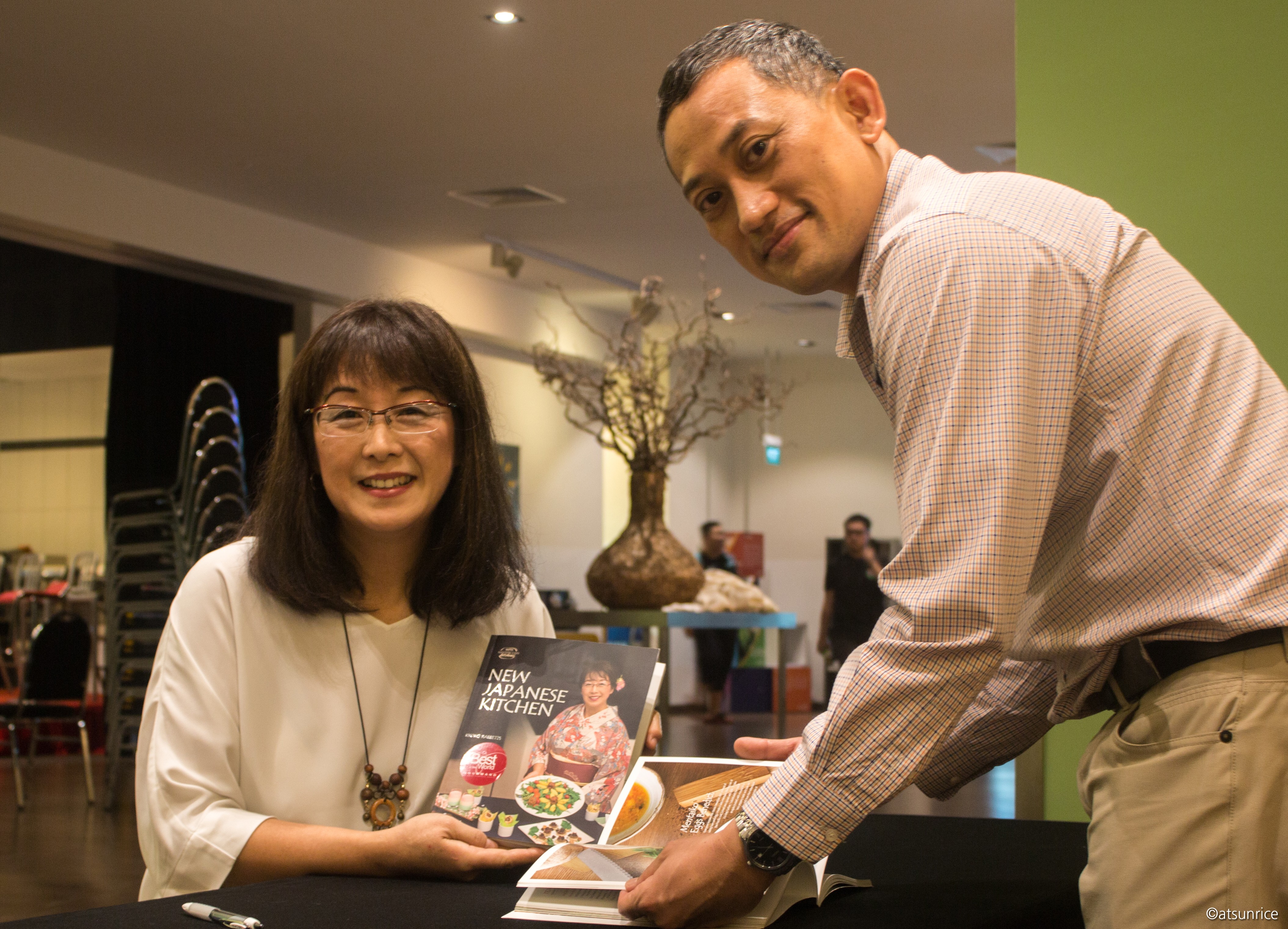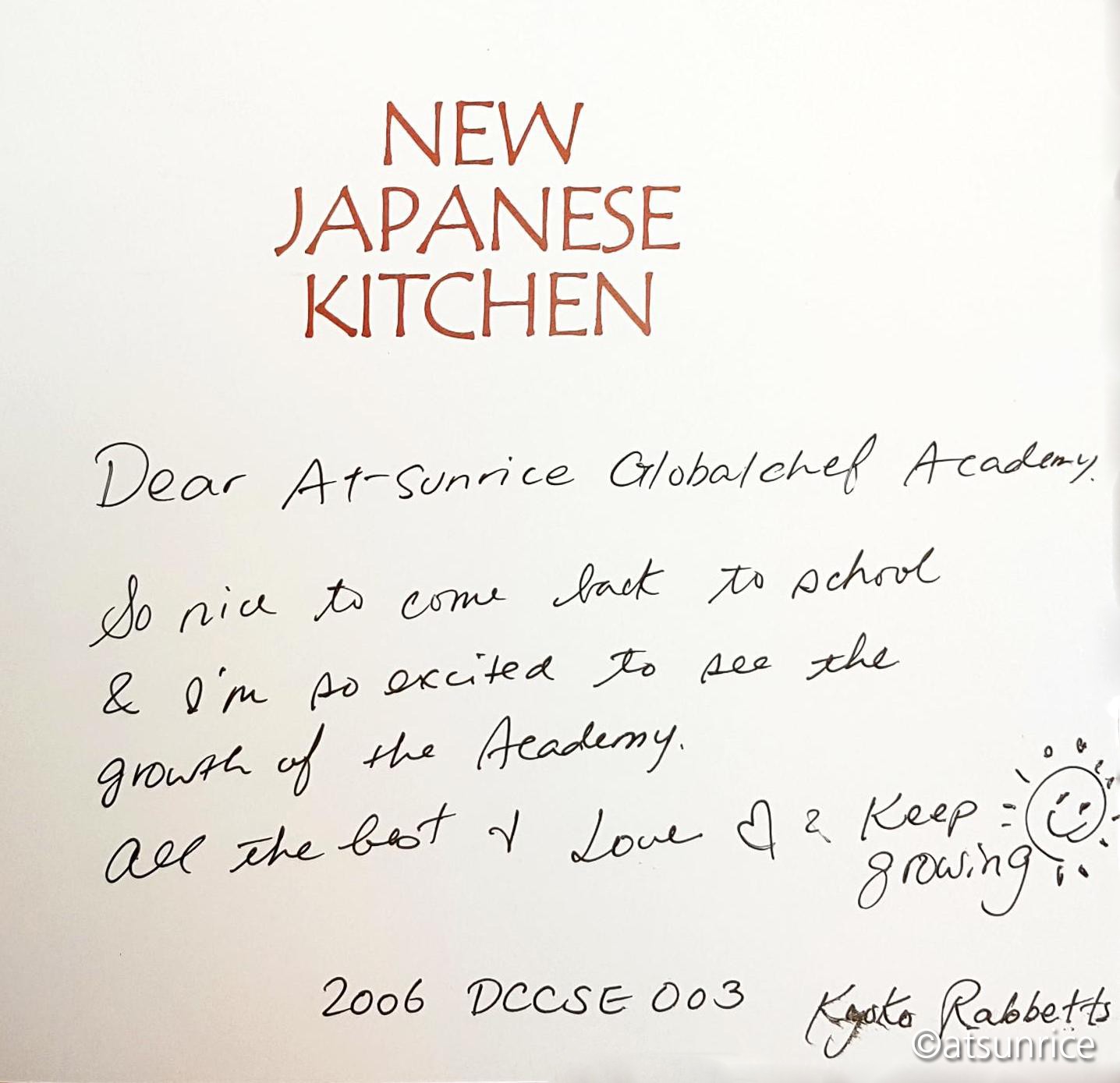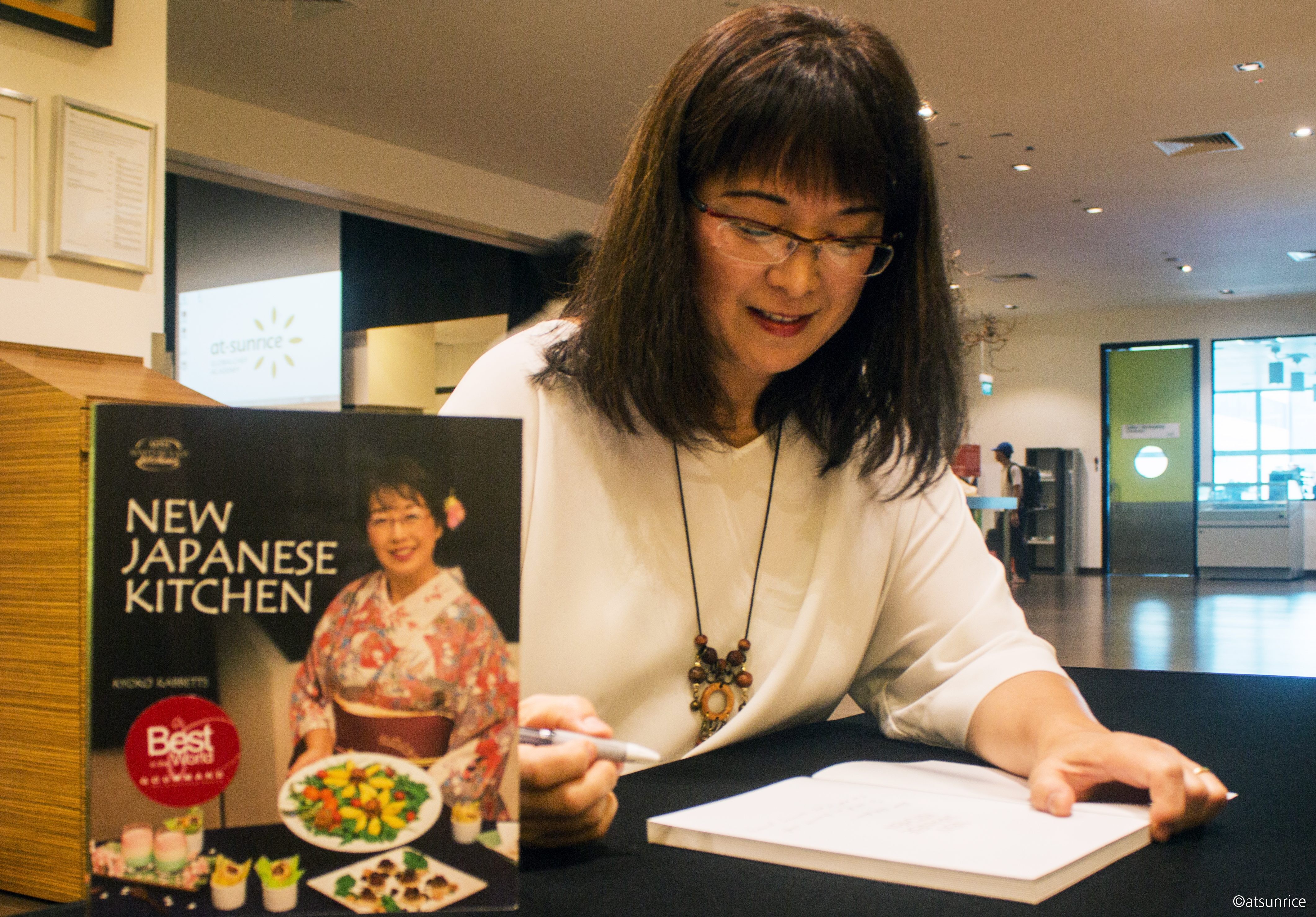An Alumni Story
Kyoko Rabbetts is diverse. She’s 100% Japanese, and she’s 100% authentic in her heritage cuisine. What’s diverse about that? Kyoko is cooking for the locals in Malaysia, a country that prides itself on its own local fare, and they simply can’t get enough of her!

Kyoko started her culinary passion in her early 40s after 15 years of working at Cathay Pacific Airways. She quit her job as a Senior Purser and signed up as a ‘Culinary Craft & Service Excellence’ Diploma student in At-Sunrice GlobalChef Academy; then a small culinary school in Fort Canning that would grow to become one of Singapore’s best schools in Culinary Arts. Her time there taught her the foundational skills and techniques of cooking, and confirmed her new career passion
A change in Kyoko’s personal life saw her moving from Singapore to Malaysia. She added to her education by attending ‘Tsuji Cooking School’ in Japan, a partner of At-Sunrice. Armed with these skills, Kyoko was confident and excited for a challenge, so she returned to Malaysia to change the mindset of Japanese cooking.
The Malaysian local scene embraced her unique yet simple style of Japanese cooking. She was able to shine a light on the fact that ‘fusion’ cooking doesn’t mean it’s unauthentic.
“It’s a regular belief that authentic Japanese food must be just Sushi or Sashimi, and that’s it’s difficult to prepare,” says Kyoko. She was there to do away with those myths and show that there’s a vast expanse of dishes that could be created simply and beautifully, and even taste authentic with local Malay produce.
“I met so many lovely Muslim friends. Every time when they asked me to cook Japanese food, I encountered problems. Our key ingredients can’t be used: pork, alcohol and others. Many people are vegetarians, many of them can’t eat beef,” recalls Kyoko.

“That’s when I created my own ‘Japanese crucial key ingredients’ from scratch with all locally available ingredients, such as ‘Dashi’ that can be used for Halal restrictions, both non-vegetarian and vegetarian, and ‘tonkatsu sauce’ – although ‘tonkatsu’ means pork cutlet, there is no pork in this product at all. I created these recipes from locally available natural ingredients that can be eaten by many people with food restrictions in this part of the world”.
Due to the demand, Kyoko decided it was time to share her recipes with the world. Her cookbook ‘New Japanese Kitchen’ was born, revealing what locals really eat in the regular Japanese household, and how easy it is to cook the same dishes in ours. It’s no surprise that she placed 3rd in the Japanese Cuisine sector of the “Gourmand World Cookbook Award”, the most prestigious cook book award in the world.
Kyoko is proof that sometimes the best ideas for success are simply about staying true to who you are, while adapting and sharing that passion for authenticity with others.
If you’re interested to learn sushi-making, take up our newest WSQ Prepare Sushi programme. Sign up here.

This site uses Akismet to reduce spam. Learn how your comment data is processed.